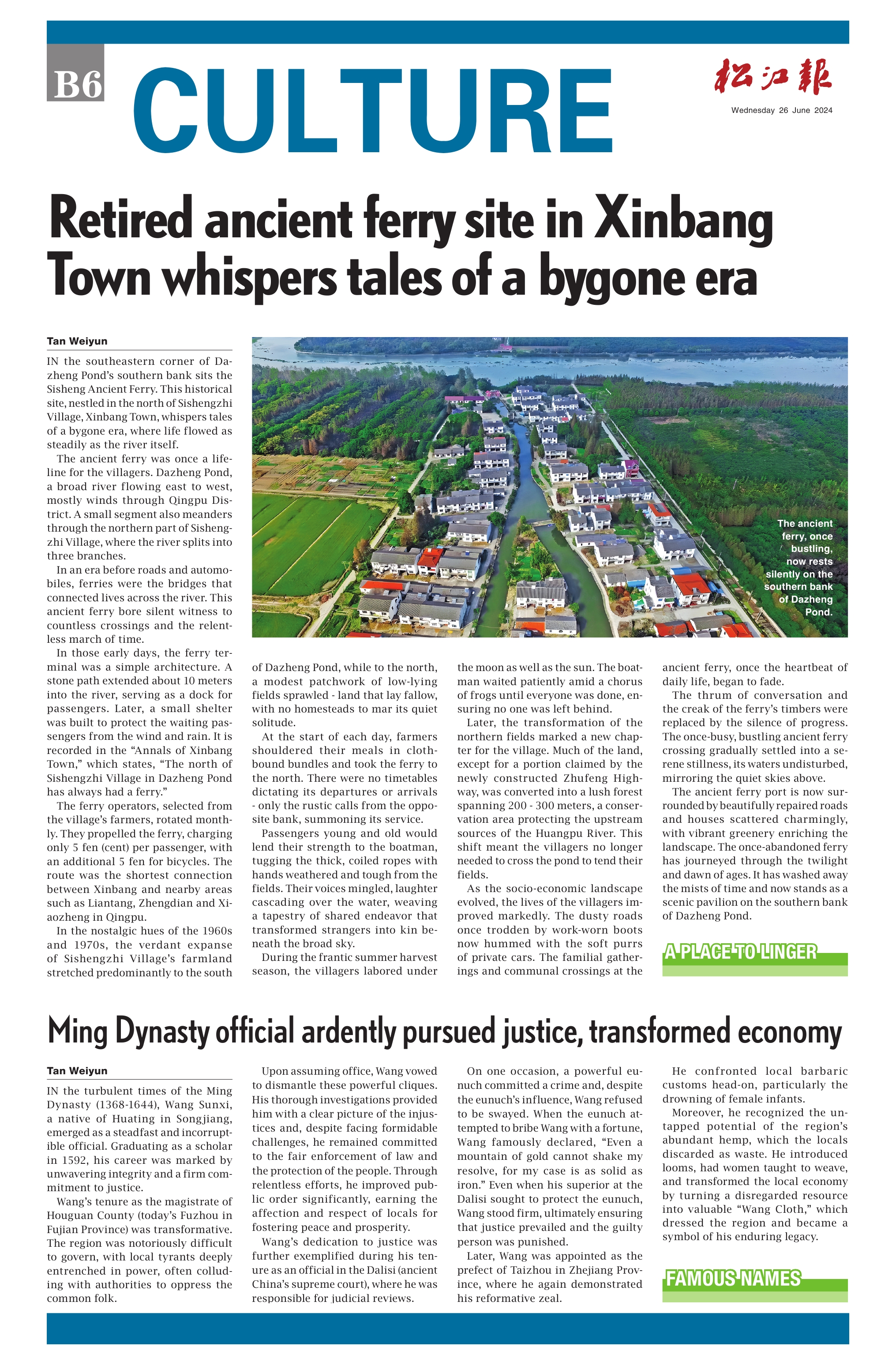

Ming Dynasty official ardently pursued justice, transformed economy
Tan Weiyun
IN the turbulent times of the Ming Dynasty (1368-1644), Wang Sunxi, a native of Huating in Songjiang, emerged as a steadfast and incorrupt-ible official. Graduating as a scholar in 1592, his career was marked by unwavering integrity and a firm com-mitment to justice.
Wang’s tenure as the magistrate of Houguan County (today’s Fuzhou in Fujian Province) was transformative. The region was notoriously difficult to govern, with local tyrants deeply entrenched in power, often collud-ing with authorities to oppress the common folk.
Upon assuming office, Wang vowed to dismantle these powerful cliques. His thorough investigations provided him with a clear picture of the injustices and, despite facing formidable challenges, he remained committed to the fair enforcement of law and the protection of the people. Through relentless efforts, he improved public order significantly, earning the affection and respect of locals for fostering peace and prosperity.
Wang’s dedication to justice was further exemplified during his tenure as an official in the Dalisi (ancient China’s supreme court), where he was responsible for judicial reviews.
On one occasion, a powerful eunuch committed a crime and, despite the eunuch’s influence, Wang refused to be swayed. When the eunuch attempted to bribe Wang with a fortune, Wang famously declared, “Even a mountain of gold cannot shake my resolve, for my case is as solid as iron.” Even when his superior at the Dalisi sought to protect the eunuch, Wang stood firm, ultimately ensuring that justice prevailed and the guilty person was punished.
Later, Wang was appointed as the prefect of Taizhou in Zhejiang Province, where he again demonstrated his reformative zeal.
He confronted local barbaric customs head-on, particularly the drowning of female infants.
Moreover, he recognized the untapped potential of the region’s abundant hemp, which the locals discarded as waste. He introduced looms, had women taught to weave, and transformed the local economy by turning a disregarded resource into valuable “Wang Cloth,” which dressed the region and became a symbol of his enduring legacy.
南京路特软件有限公司 仅提供技术服务支持, 文字、图片、视频版权归属发布媒体

